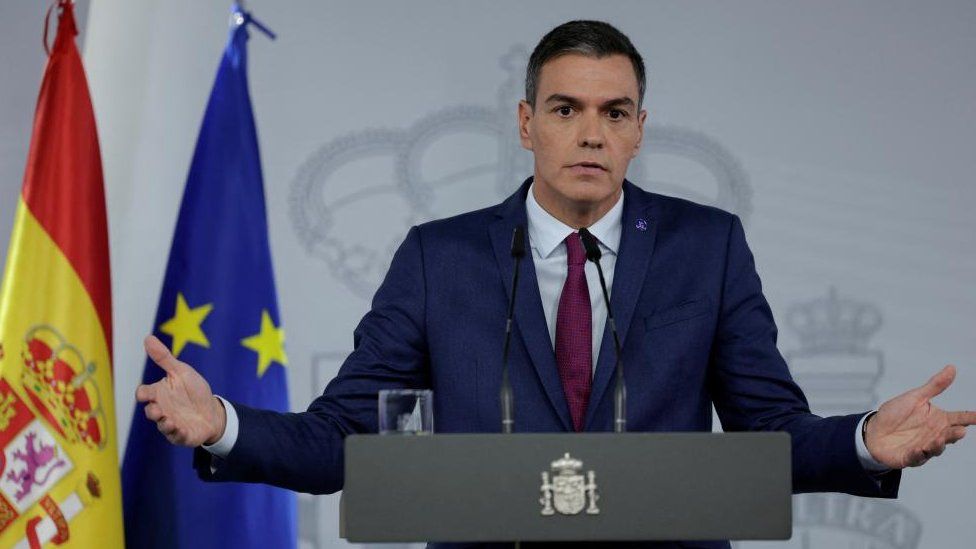-

-
-
Loading

Loading

King Felipe VI has requested caretaker Prime Minister Pedro Sánchez to attempt to form a government after his conservative opponent failed to do so. Sánchez, leader of the Socialist party, plans to meet with every political party except the far-right in hopes of securing a second term. It seemed likely that Sánchez would have a better chance of forming a majority government since he came in second place in the July elections, compared to Alberto Núñez Feijóo. However, it was clear that Sánchez would need the support of Catalan nationalists to achieve a majority. Without the backing of pro-independence parties, Sánchez would fall short of the required 176 seats in parliament, resulting in a repeat election. Sánchez is now aiming to form a progressive coalition government with parliamentary support to ensure stability in the country. He has until November 27 to secure enough support for an investiture vote in parliament and will commence talks with political groups this week. Sánchez has a chance of getting the necessary numbers by securing the support of Sumar and Basque regional parties, but the Catalan pro-independence groups have stated their demands for an amnesty for separatists involved in the 2017 independence bid. The proposal for amnesty has faced opposition, including from within Sánchez's own party, as it is seen as unconstitutional and a threat to Spain's unity. Despite the backlash, Sánchez has made concessions to the independence movement in the past. He has granted pardons to jailed Catalan leaders and reformed the criminal code. However, an amnesty is seen as a much more significant step, and the last such law was approved in 1977 during Spain's transition to democracy. A recent poll showed that the majority of Spaniards, including Socialist voters, oppose an amnesty. Sánchez will argue that pursuing this initiative will improve the atmosphere in Catalonia, which has already seen reduced tensions since the failed secession attempt. In addition, if he succeeds in forming a new coalition government, left-wing voters would be pleased to see the conservatives and far-right party out of power for another term. If Sánchez fails to form a government, Spaniards are likely to face another election in January.